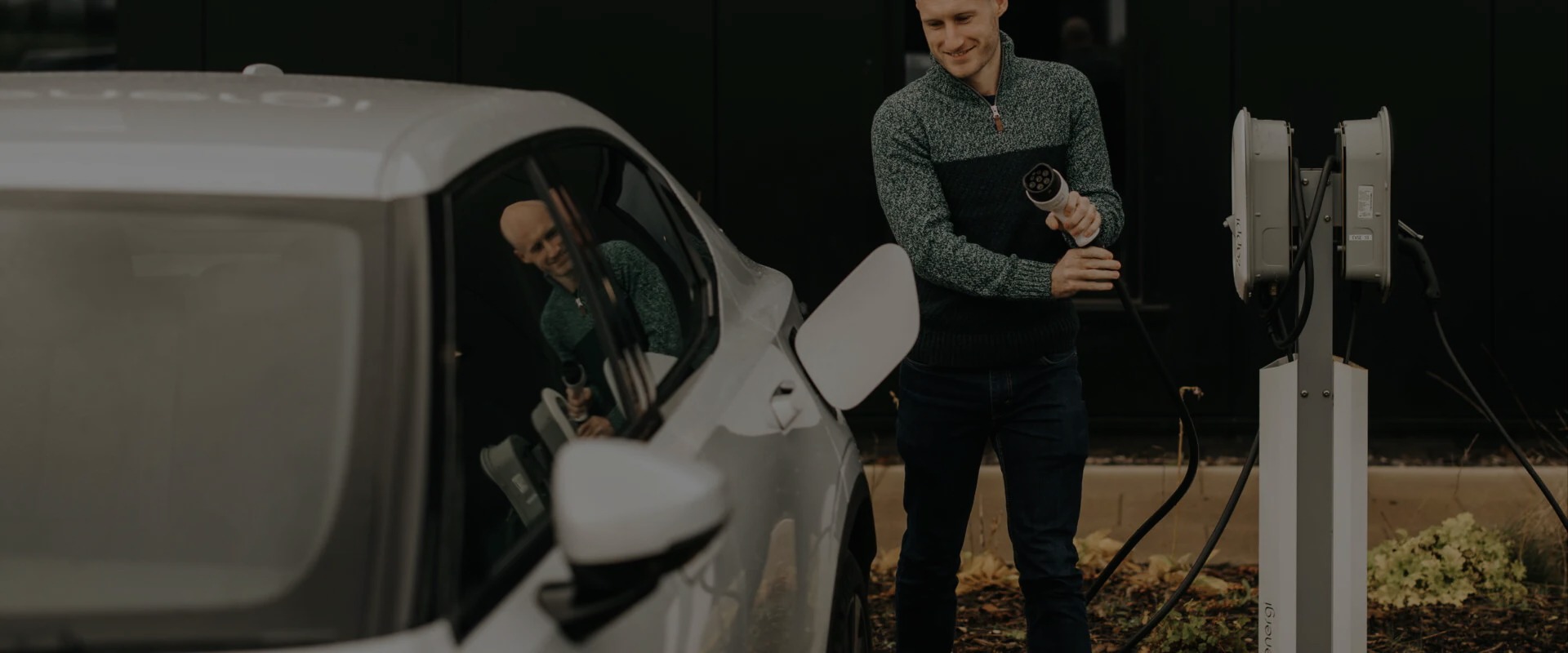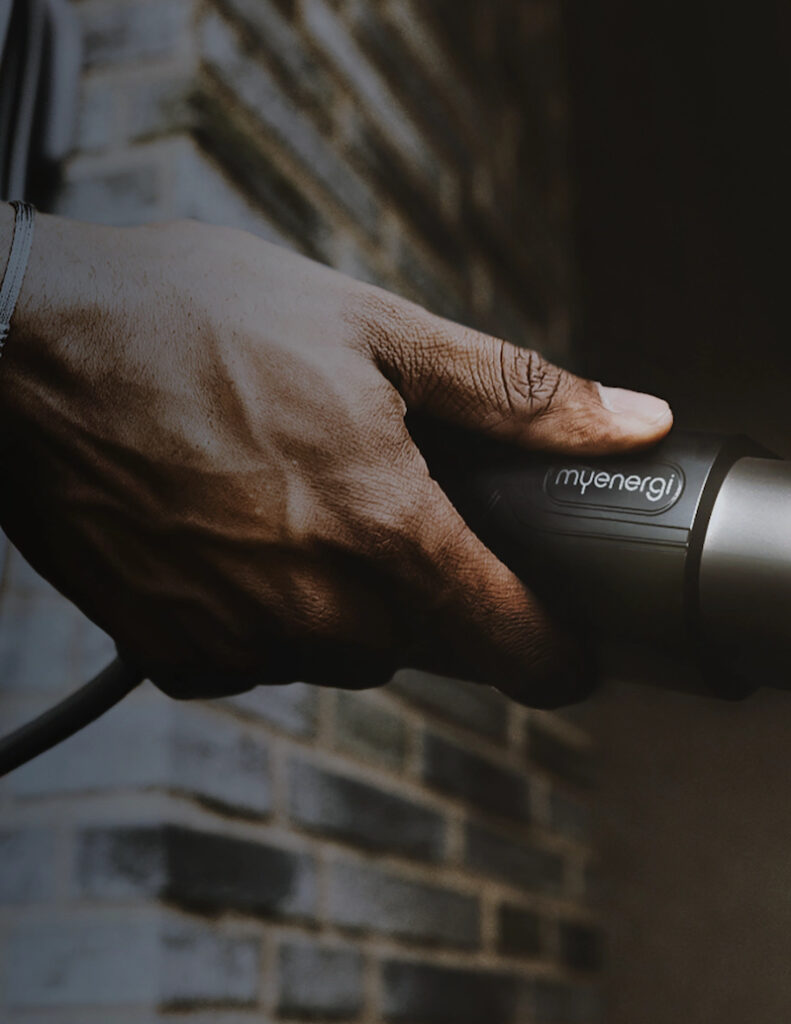
How to charge an EV
Charging your EV is relatively simple. You plug it in and bingo – you’re charging! Okay, there’s a little bit more to it than that and it starts with installing a home EV charger, like our zappi EV charger.
The majority of EV drivers in the UK have access to at-home charging because of the cost, time, and environmental benefits. For instance, home EV charging is significantly cheaper than public charging stations (more on that later), you can charge overnight so you’re ready for the day ahead of you, and if you have solar panels installed at your home you can charge with 100% green energy – pretty cool right?
Browse EV ChargersElectric Car Charging FAQs
When it comes to electric car charging, we’ve been around the block a bit. As a leading manufacturer of renewable energy solutions for homes and businesses – we come across all kinds of questions from our customers, as you can probably imagine! Here are a few of those we hear most often.
Yes, you can charge your car without solar. Your zappi EV charger will draw power from the national grid, much like a conventional electric vehicle charger. If you’re looking to introduce solar panels to your home down the line, you are future-proofed with your zappi – allowing you to charge your EV with 100% green energy.
This depends on your home setup. If you don’t have home battery storage, using zappi and eddi can maximise solar self-consumption. Charge your EV during the day when solar production is high and use eddi to divert excess energy for heating your home. If you have a home battery, the system can store surplus solar for later use, including EV charging. This way, you can minimise grid reliance and save money on electricity bills. Find out more about how solar panels are installed and the benefits they can provide in our handy guide.
You can turn on your EV whilst it’s charging however you won’t be able to move the vehicle and the power steering will be deactivated whilst it is plugged in. You can still use the car’s systems, such as the radio and climate controls, to entertain yourself and keep warm whilst your car charges up.
Depending on your energy tariff, the best time to charge your electric car will typically be off-peak hours. These are usually in the night and early morning (anywhere between 12am to 7am) as fewer people are using energy from the grid.
Charging your EV at night not only saves you on your energy bills but gets your car ready for the day ahead so you’re not rushing to charge it in the morning to get to work on time.

Understanding EV charging connectors
EV charging connectors are the physical interfaces that connect your EV to the charging station. They ensure a safe and efficient transfer of electricity between your vehicle and the charger.
In recent years, the UK has moved to standardisation of EV connector types, leading to Type 2 connectors becoming the go-to for most electric vehicles.
With our zappi EV charger, you have the option of getting an untethered or Type 2 tethered connector to suit your needs.
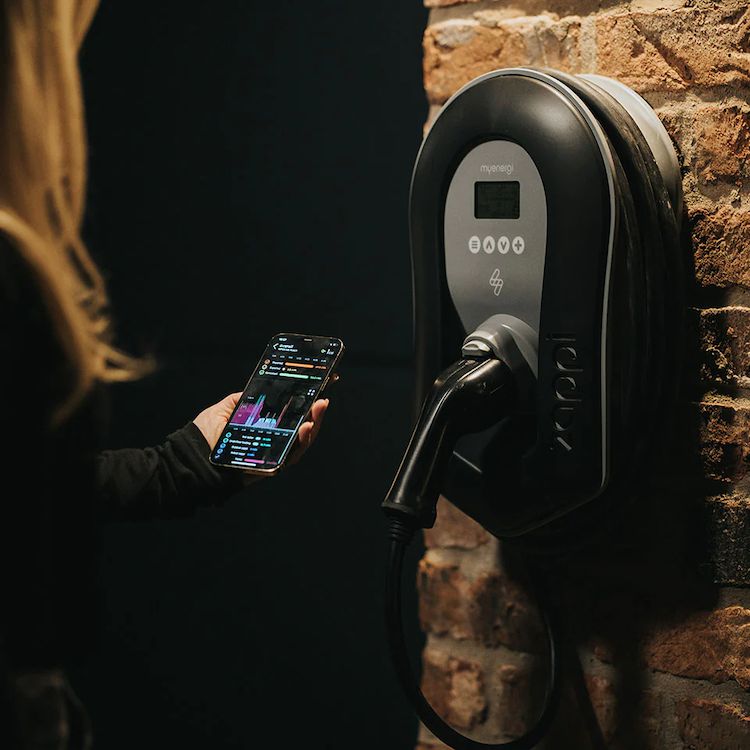
EV charging modes explained
EV charging modes are the different methods used to transfer electricity to your EV. There are two different modes: AC and DC charging.
AC charging is the most common method for home and workplace charging. AC electricity is supplied to the EV through a cable connected to a charging station. The onboard charger in the EV then converts the AC power into DC power and stores it in the battery.
DC charging is used in rapid charging stations. DC electricity bypasses the onboard charger and is directly supplied to the battery. This allows for much faster charging times and is ideal for long journeys or charging in a hurry.
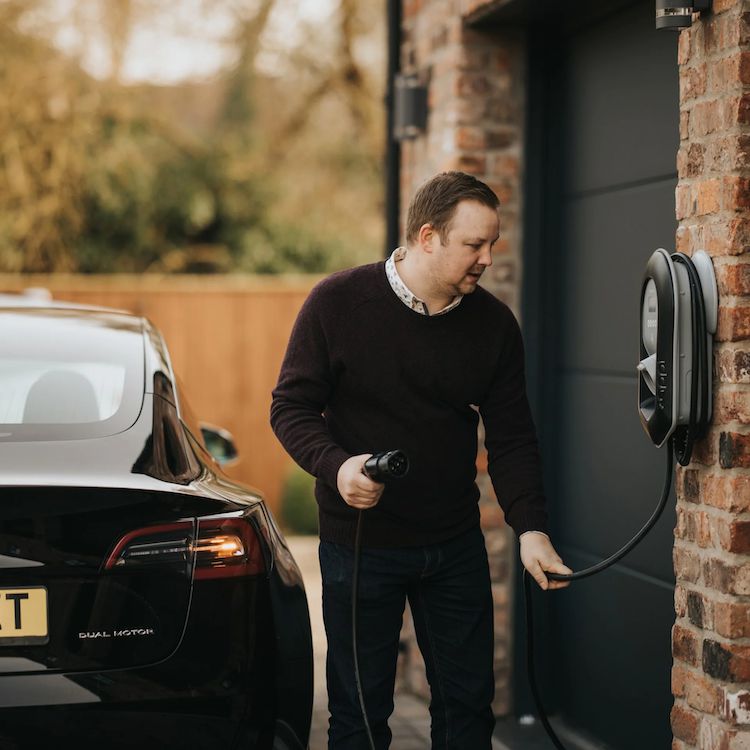
How long does it take to charge an EV?
How long it takes to charge your EV will depend on a few factors including the model of your car, the size of the battery, and the speed of your charging point.
For a typical 60kWh EV battery, you can expect to charge your electric vehicle from empty to full in around 8 hours with a 7kW EV charger or around 3 hours with a 22kW EV charger.
With our zappi EV charger, you can choose a power output of 7kW or 22kW to suit all of your at-home charging needs.
Buy zappi with installation today
How much does it cost to charge an EV?
The cost of charging an EV depends on several factors, including your energy tariff, the size of your battery, and the charging speed.
For a typical 60kWh EV battery, charging with a 7kW home charger takes about 8 hours and costs around £11.20 for a full charge. Charging with a 22kW home charger takes about 3 hours and costs the same.
Energy suppliers often offer cheaper rates for electricity during off-peak hours. To get a more competitive rate for charging your EV, it could be worth comparing your current traffic against others out there on the market. Take a look at our Partner Octopus to learn about their Intelligent Octopus Go tariff.
If you’re on the go and need to top up at a public charging station, you may expect to pay slightly more than your home charger due to an additional fixed fee on top of the per-kWh rate.
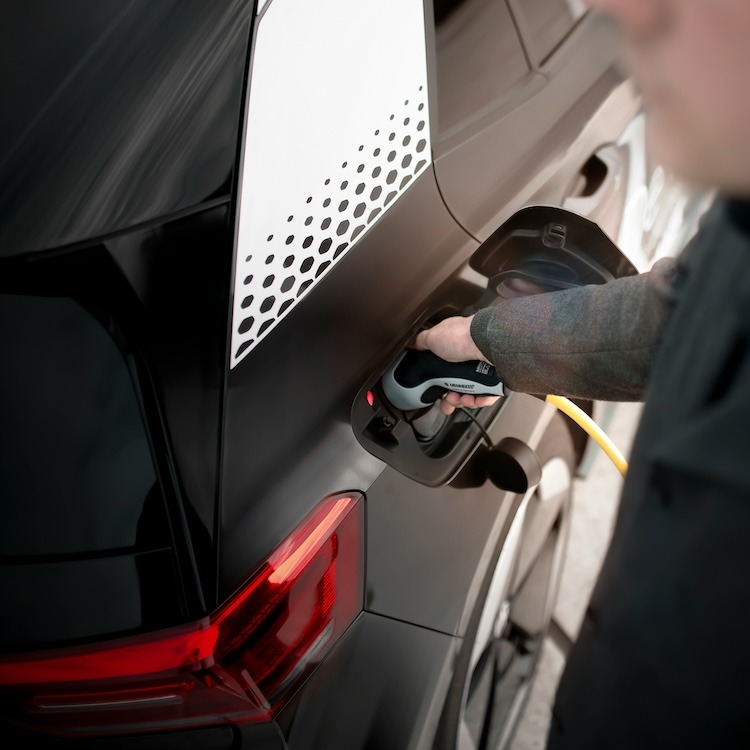
How to use EV charging stations
When you need to top up your charge when you’re out and about, you’ll need to visit an EV charging station.
Finding an EV charging station is pretty easy these days as EVs are becoming more and more popular. There are various smartphone apps available to help you locate your closest station if you’re not sure.
Once you arrive at the station, pop open your charging port and plug in your vehicle. Some charging stations will have charging cables available and others will require you to use your own.
To begin charging your electric vehicle, follow the instructions on the charging station. Some stations may require using a smartphone app, scanning a QR code with your phone, or paying with a contactless or RFID card. Researching the charging station you are visiting beforehand will allow you to be prepared when it’s time to top up your battery.
Petrol
Electric
Charging with the intelligence of zappi
Potential savings
Cost to charge off-peak
Cost to charge off-peak and solar
Display cost to charge

*Petrol annual cost based on 10,000 miles at £1.41/litre. Electric annual cost based on 10,000 miles charging on a flat rate tariff costing £0.27p/kWh. Off-peak tariff based on Octopus Intelligent Go’s time-of-use pricing at 7.5p/kWh. Pricing of tariffs varies by region. Costs shown do not include any additional charges (such as standing charge) or discounts. Assuming 25% of your car battery is charged with solar. Cost projections exclude any export payments. These calculations are based on the manufacturer’s NEDC figures. Your mileage and performance may vary based on the weather, your driving style and type of route driven.
Charging station etiquette
Public EV charging stations are a shared space, and maintaining a level of etiquette can help keep things streamlined for everyone:
- Don’t hog the charger: Unplug your EV once you are fully charged and allow others to use the station.
- Pay attention to station rules: Some stations may have specific rules, time limits, or payment methods. Keep informed of these and adhere to them.
- Keep the area tidy: Dispose of any rubbish generated from your visit via the station’s bins and keep the space tidy for other drivers.
Maintaining your EV battery
Your EV’s battery is a unique bit of kit and deserves a level of respect to maintain its health and longevity:
- Respect the elements: Extreme temperatures can degrade your battery over time. Where possible, park in shaded areas and avoid leaving your car in direct sunlight for extended periods.
- Charge smart: Whilst fast charging is convenient when you’re in a hurry, it isn’t ideal for long-term battery health. Opt for slower charging when at home.
- Regularly check in with your EV’s battery health via the onboard system or during routine maintenance.
EV safety tips
Electricity is often synonymous with danger, ensure you keep yourself and others safe by adhering to some simple safety precautions:
- Regularly check your charging cables for any sign of damage or wear.
- Handle charging cables with care by avoiding tugging or twisting which can lead to damage.
- Follow the safety instructions/guidelines provided by the manufacturer of your vehicle.
- When charging in public areas, stay mindful of your surroundings and ensure your safety.
Your EV charging questions answered
Yes, it’s completely safe to charge your EV in the rain. Whilst water and electricity aren’t usually best combined, the hardware in your EV (and the equipment you use to charge it) is designed to be used in dry and wet conditions – keeping you moving no matter what the British weather throws at you.
It is possible to charge your EV with a regular three-pin plug at home, however it isn’t recommended. With a standard 13amp socket, you will be subjected to slower charging speeds as well as increased load on your circuit. It’s recommended that if you own an electric vehicle, you should install a dedicated EV charger, like our eco-smart zappi.
This depends on a few factors, such as your driving habits and the size of your battery. However, these days, the average range of an EV is around 300 miles, which is ample for most drivers. If you’re just using your EV for a simple commute to work or to pick up the weekly shopping, you should find yourself travelling range-anxiety-free, especially if you have a home EV charger.
On average, electric vehicles will lose around 2-3% of charge a month when sitting idly. For instance, an EV with a range of 300 miles will only lose around 6-9 miles of charge if you leave it parked for a month.
Extreme temperatures can affect this so if you’re planning to leave your car parked for long periods, try to keep it in a temperature-controlled environment to preserve your battery.
You should also attempt to keep your battery charged between 20% and 80% for optimal battery health when leaving your car idle.

